I've just started learning about TDD and am trying to write a simple project that way.
I'm using Eclipse and JUnit, and every time I make a change I run all the tests in the relevant package.
But then I'm very surprised to see in the package explorer that one of my test cases has a big red cross indicating a compiler problem... Annoyed I figured that I got my eclipse shortcuts mixed up and haven't been running all the tests, as they are all passing.
But when I start fiddling about, I realise that it seems Eclipse + JUnit will run and pass tests even if there are compiler errors...
The JUnit test case:
import static org.junit.Assert.*;
import org.junit.Before;
import org.junit.Test;
public class ATestCase {
private Command command;
private Invoker invoker;
@Before
public void setUp() throws Exception {
command = new Command() {
public void methodA(){};
//haven't implemented methodB()
};
invoker = new Invoker(command);
}
@Test
public void test(){
invoker.invoke();
}
}
interface Command{
void methodA();
void methodB();
}
The Invoker class:
class Invoker{
private Command command;
public Invoker(Command command) {
this.command = command;
//if I invoke methodB() I get UnresolvedCompilationError
}
public void invoke(){
command.methodA();
//only if I call methodB here
//do I get Unresolved compilation problem
// command.methodB();
}
}
The command object I create in setUp in the test case only implements one of the interface's methods. This of course causes a compilation error warning in Eclipse.
However unless I actually call that method in the test case, the test passes. If I do call the method, then the test fails with 'unresolved compilation error'.

Can anyone explain to me what exactly is going on?
******EDIT******
I'm not sure why this was closed as a duplicate.
Apparently I'm supposed to edit this question to make the difference clear:
- Well the question I'm supposed to be duplicating asks in the first line:
What are the possible causes of a "java.lang.Error: Unresolved compilation problem"?
- The title of my question states I'm asking:
Why/how does JUnit pass tests with compiler errors?
As in how can code which shouldn't compile be run by JUnit without causing errors?
I fully understand the causes of the Unresolved Compilation Error, it's the obvious unresolved compilation error in my code. What I don't understand is how the error doesn't always occur (it only occurs when I specifically call an unimplemented method) and how the tests pass?!
It may be that these issues are related, but unless there is a specific answer explaining how they are related I fail to see how they are in any way duplicate questions...